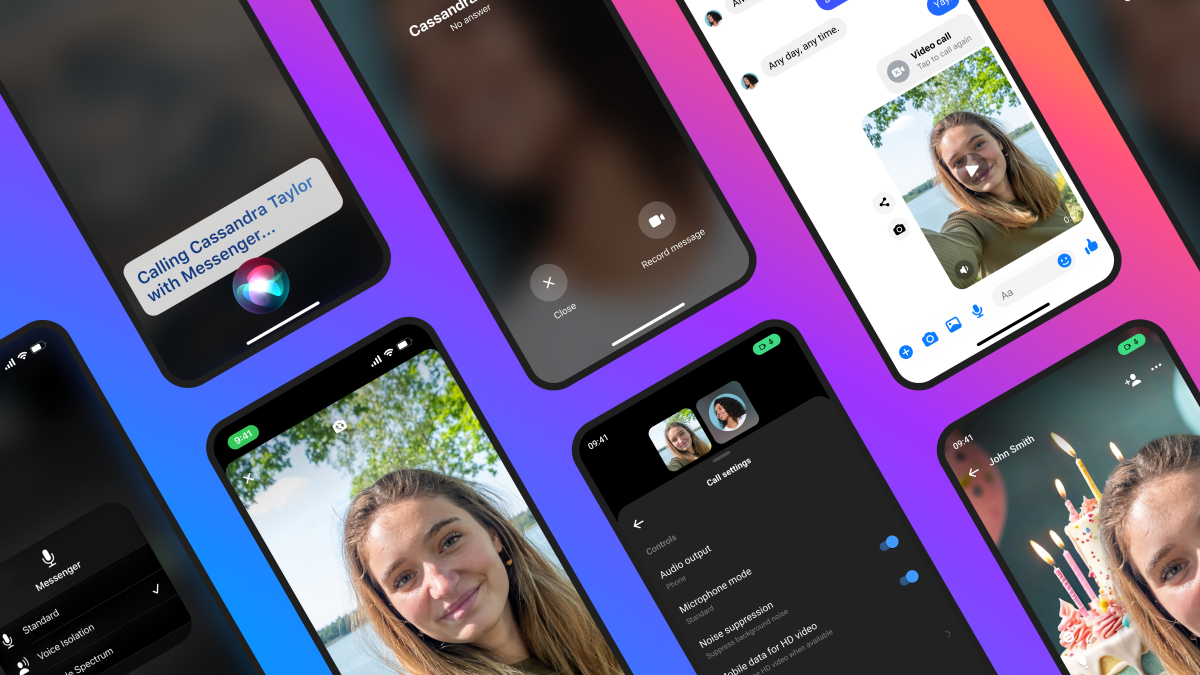AI🌪️Thursday Updates: Nvidia’s Blackwell, Messenger’s New Features, Niantic’s Geospatial Push, and OpenAI’s Legal Hurdle
1️⃣ Nvidia’s Blackwell AI chip is steaming ahead 🚂
2️⃣ Messenger upgrades with AI backgrounds, HD calls, & noise suppression 📞
3️⃣ Pokémon Go powers Niantic’s geospatial AI 🌍
4️⃣ OpenAI fumbles key evidence in NYT lawsuit ⚖️
Get the full scoop below 👇
The world of AI is buzzing with groundbreaking developments! Nvidia is charging ahead with its next-gen Blackwell AI chips, while Messenger is redefining calls with AI backgrounds and HD video features. Meanwhile, Niantic is harnessing Pokémon Go data for large-scale geospatial AI, and OpenAI faces scrutiny after losing potential evidence in a copyright lawsuit with The New York Times. Dive into the latest updates and what they mean for the future of technology!
1. Nvidia’s Blackwell AI chip is steaming ahead
Nvidia is soaring as an AI powerhouse, reporting $30.7 billion in data center revenue for Q3 2025, far surpassing its gaming segment. Its Blackwell AI chips are in full production, driving billions in revenue. Nvidia shipped 13,000 Blackwell samples and continues to dominate with its H200 chips, now its fastest-selling product. CEO Jensen Huang predicts sustained demand for its H-series chips into next year. AMD is adapting to AI trends, while Intel lags behind, undergoing restructuring. Nvidia’s AI focus cements its position as a leader, reshaping the industry landscape and surpassing tech giants in profitability.
/cdn.vox-cdn.com/uploads/chorus_asset/file/25343060/NVIDIA_Blackwell_Architecture_Image.jpg)
2. Messenger upgrades with AI backgrounds, HD calls, & noise suppression
Messenger is leveling up your communication game with exciting new features! Personalize your video calls with AI-generated backgrounds to match your mood or spark creativity. Enjoy HD video calls with noise suppression and voice isolation, ensuring crystal-clear conversations that feel as close to in-person as possible. Missed calls? No worries—leave audio or video messages for seamless follow-ups. Plus, hands-free convenience is here with Siri integration, letting you send messages or make calls effortlessly. These updates make connecting with loved ones more vibrant, reliable, and fun than ever.

3. Pokémon Go powers Niantic’s geospatial AI
Niantic is using Pokémon Go data to build large-scale geospatial AI models aimed at enhancing augmented reality (AR), robotics, and other technologies. This AI model, called the Large Geospatial Model (LGM), helps machines understand and interact with physical spaces, paving the way for innovations like AR glasses and autonomous systems. However, Niantic’s use of location data raises privacy concerns, as it has quietly gathered this data without clear user consent or transparency on how it’s shared with third parties. The company has been developing this system since 2019, but only recently disclosed its true purpose .

4. OpenAI fumbles key evidence in NYT lawsuit
OpenAI is facing a lawsuit from The New York Times and Daily News over alleged unauthorized use of their content to train AI models. During the legal process, OpenAI accidentally deleted key data, hindering the search for copyrighted content in its datasets. Although the deletion wasn’t intentional, it forced the plaintiffs to redo significant work, highlighting concerns over OpenAI’s control and ability to search its own datasets for potentially infringing material.

The future of AI is unfolding at lightning speed, shaping industries and redefining possibilities. From Nvidia's cutting-edge hardware to Niantic's geospatial advances, every step forward brings us closer to a smarter, more connected world. As tech giants continue to innovate, staying informed is key to understanding how these developments impact us all. Keep exploring, stay curious, and embrace the AI-driven revolution—because the best is yet to come!









